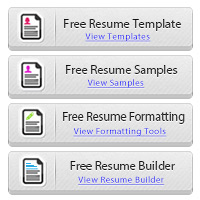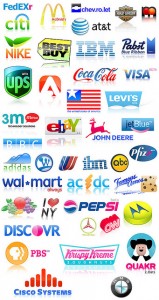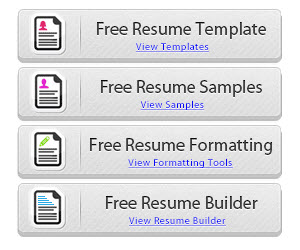How a Recruiter evaluates your resume
Let me state that every recruiter works a little differently in terms of how they look at resumes, screen, evaluate and so on. I can only speak from my experience so here is how I spend my twenty seconds or so while looking at your resume.
Recent Experience
Is your most recent experience relevant to the position that I am hiring for?
This is the the first question that comes to mind, they don’t necessarily have to be identical, I am basically scanning for two screening factors.
1) CAN DO – technical skills, credentials, scope of responsibilities
I want to see that your last job has prepared you well enough for this new position that I am hiring for. Are you able to use certain programs, are you able to jump right in or do you need hand holding, specific experience dealing with x, y, z
2) WILL DO – performance, career path, achievements, recommendations
Is this position a step up, step down or the same position?
- A step up to me can indicate that you really like this type of work, you strive to improve and get ahead. I love hiring eager people who always reach for more in terms of self development and career progression. In my opinion at times eagerness can outperform experience, wanting to learn and do a good job is a highly desired trait that I look for. This is why I always advise people never to get comfortable, always reach for bigger and better things, as soon as you have the required experience start taking some risks.
- If experience is very high on the agenda then I love to hire somebody who is already doing the same job. They are more than likely to have all the requirements that this positions needs and it minimizes operational costs. If it’s a role that is very task oriented in nature I always chose to go with experience and stable work history
- A step down for me personally is alarming to a certain degree. It’s a red flag if the person is currently working in a position that is higher up. This may indicate to me that this person may not get along with people or can’t cope with the responsibilities. If you are unemployed however it’s not that big of a deal. There is a risk that you may jump ship if a better offer came around so that is generally where you see the term “overqualified” come into place. I do understand that people have a hard time finding work so they apply to anything that is related to their field.
Other things that I try to figure out based on the most recent positions are the following
- How long has this person been in this role
- Did they quit if so why
- Did they get fired if so why
- How long it has been since this person was last employed
- How well you preformed at your last position
Takeaway: When it comes to writing your resume, please put in some extra effort when it comes to your most recent role. This is the one you should tailor the most.
I have written this article that may help: How to tailor your resume
Career Path progression – Is there one?
Ideally I love to see a steady career progression. It shows me that you are reaching for more and always growing and taking on more challenges and responsibilities. Nobody wants to hire just another cog in the wheel. At the same time people also want to keep turnover low as sourcing, hiring, training, in addition to lost experience and operational slowdowns can amount to big costs.
To state this in other words “we simply can’t afford to make hiring mistakes” so most recruiters including me tend to employ best practices
For example if somebody has a BA in Accounting, and an internship as a bookkeeping assistant, followed by a job as a bookkeeper which then lead to an accounting role, which then lead them to apply for a tax analyst role. That makes sense to me.
What I don’t like to see if somebody who studied nursing then went back to school to study management, while being employed at a dental office and now applying to be an assistant project manager. That is a skip/delete for me
Company Name, Company Size, Popularity
Big name companies do help out tremendously. It’s not uncommon for recruiters to refer to a candidate by “Company Name” Guy/Girl when discussing potential hires. As a recruiter you tend to learn what type of employees certain companies like to hire. What specific skill sets they recruit for, training, operations, work environment etc. Though networking we uncover lots of valuable info. If I don’t know the company that you have worked for it’s not necessarily a bad thing it just that having some big names on your resume does help.
This is why I always advise those who are looking for work to find a good staffing agency and see if they can get you a foot in the door with a well known company. Bigger sized companies are always overwhelmed and will outsource certain hr functions to staffing agencies. Going this route can make it very easy to gain experience quickly. Don’t take any job the staffing agencies offer you, there are some mean people out there. Make sure it’s a reputable company that will look good on your resume and that it’s a position that can be leveraged. Don’t let the length of the positions hold you back, a six month position could be enough to leverage the company name and experience gained to quickly see opportunities open up. Let’s move on
Is your resume optimized?
If am specifically looking for somebody with SQL and jquery programing skills then I need to see that somewhere on your resume. Preferably tied to your previous experience and not something that you learned back in school but haven’t revisited in years. My point is if you used SQL or Salesforce or any other program in your job then mention it, otherwise your resume may never return when recruiters search for certain terms. Most of a recruiters day is comprised of sourcing, basically searching the internet for candidates. I find that it’s quicker to find the person rather then to attract them though job ads and networking.
I spend a good deal of time on LinkedIn and resume banks searching for all kinds of keywords dealing with specific software, industry terms etc. It helps to have the major keywords embedded in your resume and your LinkedIn profile. I have written a guide on how to optimize your LinkedIn profile. Take a look to make the job search a bit easier on yourself.
The fastest way to optimize your resume for keywords is to look up a job description of your past, and desired positions. Don’t pay attention to the fluff and boilerplate that is on the job descriptions. Pay attention to the software used, industry specific skills ( Sales: prospecting, cold calling, specific type of sales etc ).
A recruiter does not waste time looking though a thousand of resumes and online profiles, instead we execute very specific searches in order to maximize our efficiency. If your resume does not contain the major keywords for your industry as well as the specific terms for certain roles then your resume may never be found. Take some time to optimize for the positions you would like be hired for.
Personal Branding
I don’t get what the fuss is about. Personally I don’t care too much about this. Never in my recruiting career have I tried to find somebodies Facebook profile or extensively researched their internet posts. I know that this may be different for senior executives, social media, marketing positions etc. My opinion is that if you have the skills and the experience, in other words you can do well in this role and you are interested then your personal life is of no interest to me.
If I am interested in you as a candidate I will most certainly look up your LinkedIn profile to gauge the size of your network, to make sure that the titles, company names, positions, dates all match. I want to take a look at your recommendations and I will follow any links that you have on there.
If I don’t see a LinkedIn profile it just tells me that you are lagging a bit behind
Employment Gaps
I really don’t mind gaps as long as they make sense to me. If you took of a few years to raise your kids, took off some time to travel, went back to school, started freelancing or gave it a shot with your own business. Those reasons I understand and they don’t make me wonder why there is a ten month gap between jobs.
What I don’t like to see on resumes:
- repeating gaps every single year
- very short employment history
- string of mediocre unrelated roles
- every position being a temporary job
Don’t try to hide gaps by fudging employment dates, or trying to hide it by only stating the year or leaving of dates completely. We are trained to spot red flags and our brain is wired to spot these things automatically.
__________________________________________________________________________________________
The popular thing nowadays is to say that a recruiter only spends 18 seconds or so on a resume. I think this gives people the wrong impression. We are very good at screening out resumes that is why this number is so low. When recruiters find something that they like they tend to spend quite a bit of time on the resume before giving the person a call or sending an email. I hope this will help you while job hunting and writing your resume. Let me know if you have any questions and I kindly ask you to share this article with friends
Sign up other job seekers who receive regular updates and advice [subscribe2]


